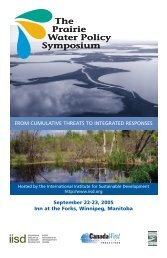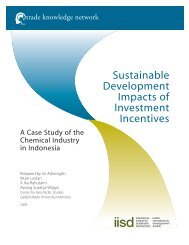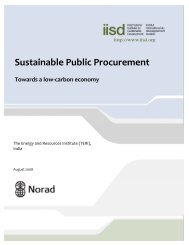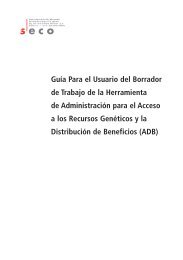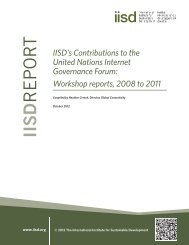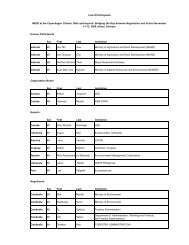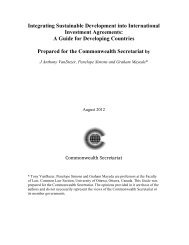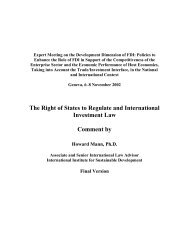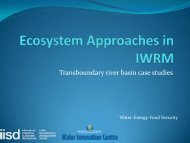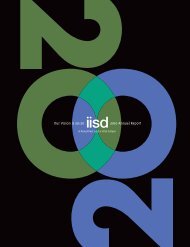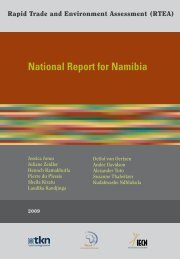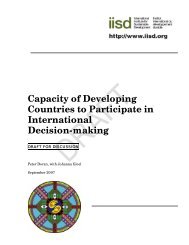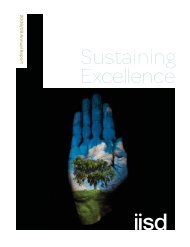Earthenterprise Tool Kit - International Institute for Sustainable ...
Earthenterprise Tool Kit - International Institute for Sustainable ...
Earthenterprise Tool Kit - International Institute for Sustainable ...
Create successful ePaper yourself
Turn your PDF publications into a flip-book with our unique Google optimized e-Paper software.
EarthEnterprise <strong>Tool</strong> <strong>Kit</strong><br />
TOOL<br />
were misleading and served to confuse rather than assist consumers. Canadian<br />
consumers say their distrust of green product claims, rather than the recession,<br />
inhibited their purchase of products touted as environmentally superior.<br />
In July 1992, the U. S. F e d e ral Trade Commission released voluntary<br />
manufacturer guidelines, covering such claims as ‘degradable’,‘compostable’,<br />
‘recyclable’, ‘recycled content’, ‘source reduction’, ‘refillable’, and ‘ozone safe’.<br />
Charges of issuing false claims have been brought against companies that make<br />
coffee filters, disposable diapers, trash bags, and aerosols. Dozens of suspicious<br />
claims are being tracked.<br />
The message is clear: to be successful, products and services must be credible<br />
to cynical and confused consumers. One way to gain credibility is to obtain<br />
certification by any of the following organizations, all of which are attempting<br />
to put an end to the confusion about genuine greenness.<br />
Utilize Industry Standards<br />
Scientific Certification Systems<br />
(Formerly known as Green Cross)<br />
Founded in 1984 to test pesticide residues in agricultural products, Scientific<br />
Certification Systems (SCS), based in Oakland, Cali<strong>for</strong>nia, has expanded its<br />
program, and now certifies a diverse array of environmental and food safety<br />
claims. Under its Environmental Claims Certification Program, introduced in<br />
1990, SCS has certified single-criteria claims such as “recycled content,”<br />
“ b i o d e g ra d a b l e ” , “ wa t e r- e f f i c i e n t ” , and “no VO C s ” <strong>for</strong> more than 1,100<br />
products.<br />
The Env i ronmental Report Card developed by SCS provides detailed<br />
in<strong>for</strong>mation about the per<strong>for</strong>mance and environmental burdens of a product,<br />
based on a lifecycle, cradle-to-grave study of the product and its packaging.<br />
Launched at Chicago’s Hardware Show in August, 1993,“The report card is the<br />
environmental equivalent of a nutritional label” explained SCS President Dr.<br />
Stanley Rhodes. The burdens listed on the report card include: the natural<br />
resources depleted, the energy consumed, the pollution released into air or<br />
water, and the solid waste generated. Such assessments make it easier to<br />
compare the total environmental burden of one product relative to another.<br />
Companies that have commissioned product report cards, which cost as much<br />
as $30,000 each, include:<br />
• North American Plastics: IronHold Recycle 1 trash bags;<br />
• Webster Industries: RENEW trash bags;<br />
• PlasticKote Inc.: PlastiKote enamel paints;<br />
18<br />
INTERNATIONAL INSTITUTE FOR SUSTAINABLE DEVELOPMENT



